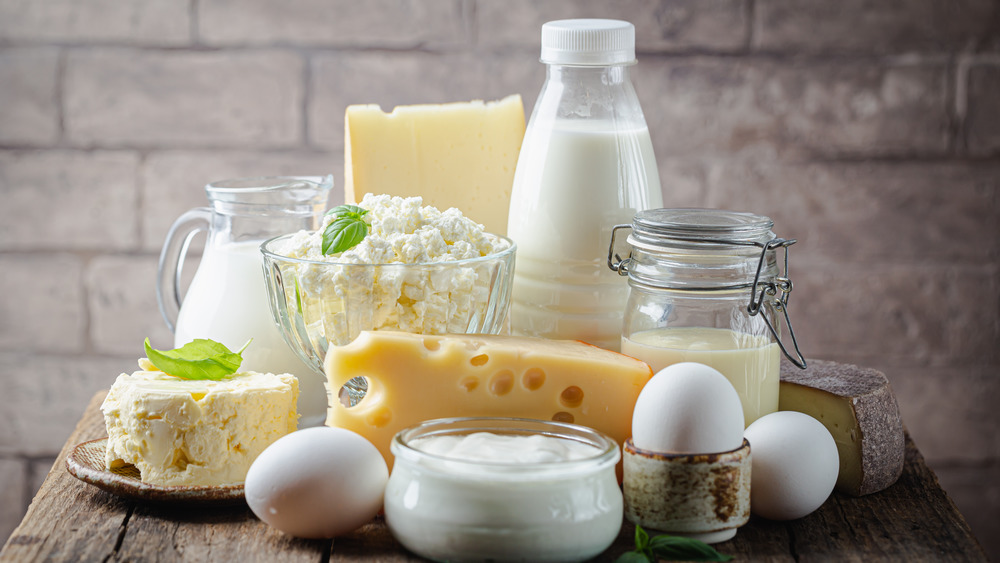When You Consume A Lot Of Dairy Every Day, This Is What Happens To Your Body
If you really want to start a (food) fight, take a hard stance on the issue of dairy. Claim that there's nothing healthier than a fresh cup of cow's milk, and those who've sworn off the stuff – either for health or humane reasons – will recite all of the ways that dairy is damaging to our bodies, animals, and the environment. Speak out against dairy, though, and cheese lovers will demand to know how you can function without creamy, wholesome goodness in your life, while you'll inspire jeers from those who question the benefits of almond milk and other non-dairy alternatives.
So, who's right? According to Alicia Galvin, RD, resident dietitian for Sovereign Laboratories, it's actually not a black-and-white issue. In an interview with Mashed, Galvin talked through the benefits and the pitfalls of eating a diet that's heavy in milk, cheese, yogurt, and other byproducts of cows. Here's what happens to your body if you eat a lot of dairy every day.
You will be building strong, healthy bones and muscles
Calcium is critical to bone health, and it also benefits your heart, nerves, and muscles, according to the Mayo Clinic. Many women are told to take calcium supplements to protect against bone loss. However, if you eat a lot of dairy every day, you might not need to take a calcium supplement, Galvin said. "You get enough calcium in without having to worry about eating enough from non-dairy food sources or taking a calcium supplement" when you load up on dairy, she explained.
Protein is another crucial nutrient that drives many people to the supplement store, so that they'll support healthy muscle mass while staving off hunger, according to Healthline. But, if you intake a ton of dairy, you can skip those whey shakes, and also don't have to worry about having "meatless Monday" multiple days of the week, Galvin pointed out. "Dairy products are excellent sources of protein, so if you do not want to rely solely on meat for protein, dairy foods can be a good option to fill in protein intake," she said. Milk and cottage cheese each have eight grams of protein per one-cup serving, while protein superstar Greek yogurt has 28 grams per eight ounces, rivaling the protein content in chicken and other meats.
Your could deal with skin issues and an upset stomach
If you eat a lot of dairy, any money you've saved on calcium supplements might need to be spent on blemish creams; according to Galvin, a dairy-rich diet can lead to skin breakouts and other problems. "For some people with dairy sensitivities, eating dairy daily can be problematic and lead to skin rashes, [and] acne flares," she said. And these aren't the only negative effects that can come from eating these foods. "For some people consuming too much dairy can lead to constipation, diarrhea,...and nasal congestion," Galvin noted.
Of course, your mileage may vary. "The tolerance level is individual for each person," Galvin added. "For one, eating several servings of dairy daily is not a problem. For others, even a small amount of dairy daily, or even just occasionally, can cause negative effects, so no one size fits all." If tummy issues are your top concern, stick with "fermented dairy like kefir and yogurt," Galvin noted, which "are great sources of probiotics."


